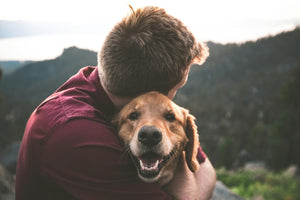2 min read • Leena Chitnis, Founder, Timberdog
Hello, wonderful dog guardians! It's Leena, back with some crucial advice for all you dedicated dog parents out there. We all want the best for our furry friends, but sometimes it can be tough to know when it's time to bring in the pros. Here are some key situations where seeking professional help is not just a good idea, it's essential.
1. Persistent Behavior Issues
Every dog has its quirks, but if your pup's behavior is causing consistent trouble—think aggression, excessive barking, chewing everything in sight, or severe separation anxiety—it's time to consult a professional. A certified dog trainer or a veterinary behaviorist can help pinpoint the root of the problem and work with you to develop a tailored plan to address it.
2. Health Concerns
Your dog can't tell you when something's wrong, so it's up to you to notice the signs. If your dog is showing chronic symptoms like allergies, skin disorders/sores, or recurring infections, or more immediate symptoms such as persistent vomiting, diarrhea, lethargy, or sudden changes in appetite or behavior, a visit to the vet is a must. Early intervention can make a huge difference in treatment outcomes.
3. Physical Changes
Lumps, bumps, and unexplained weight loss or gain can be indicators of underlying health issues. While not every lump is a cause for alarm, it's always better to have a vet check it out. Regular health screenings and maintaining up-to-date vaccinations are crucial to keeping your pup healthy.
4. Training Challenges
If you're struggling with training your dog, don't hesitate to seek help. Professional trainers can offer invaluable insights and techniques that can make training a more positive experience for both you and your dog. Remember, it's about building a strong, trusting bond with your furry friend.
5. Post-Surgery or Illness Recovery
After a major surgery or illness, your dog might need more than just rest. Physical therapy, specialized diets, and careful monitoring are often necessary to ensure a full recovery. Veterinary professionals can guide you through this delicate period, offering support and expertise.
6. Advanced Age Care
As our dogs age, their needs change significantly. Older dogs often require specialized care, including adjustments in diet, exercise, and health monitoring. Vets can provide invaluable advice on how to care for your senior dog, ensuring they stay comfortable and happy in their golden years.
Remember, seeking professional help is a sign of love and responsibility. Our dogs depend on us to make the best decisions for their health and happiness. By reaching out to the right professionals, we can give them the best care possible.
Photo credit: Eric Ward

